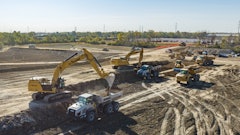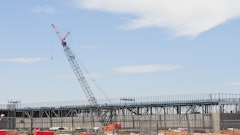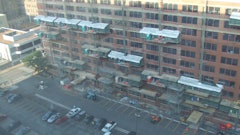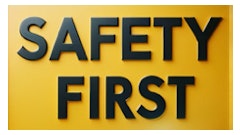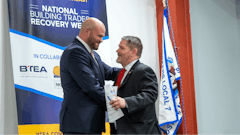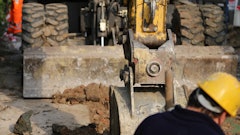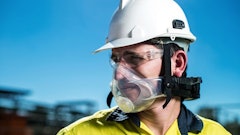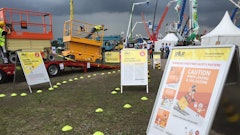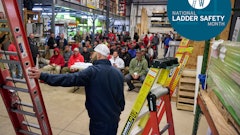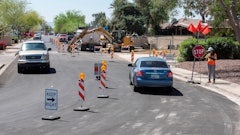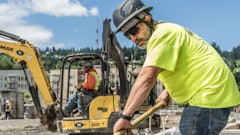TOLEDO, Ohio (April 20, 2011) – The U.S. Department of Labor's Occupational Safety and Health Administration has issued APBN Inc. of Campbell, Ohio, 13 safety citations for failing to provide fall protection and implement water safety procedures for workers sandblasting and painting the Interstate 75 Disalle Bridge more than 40 feet above the Maumee River last October as part of an Ohio Department of Transportation project. The company faces penalties totaling $193,200 and will be placed in OSHA's Severe Violator Enforcement Program.
"Falls are a leading cause of injury and death in the workplace. There is no excuse for failing to provide protection for employees facing fall and water hazards," said Jule Hovi, OSHA's area director in Toledo. "Employers are responsible for knowing the hazards that exist on their job sites and implementing safety measures to protect workers who are exposed to risks that could result in injury or death."
APBN was issued three willful citations, with penalties of $147,000, for allowing workers to be exposed to a 40-50 feet fall while climbing on and off of the abutment walls to access the two suspended scaffold platforms on the north and south sides of the Disalle Bridge; not ensuring workers wore fall protection on the job site; and not having a lifesaving skiff, ring buoys and life jackets available in the event that a worker fell into the river. A willful violation is one committed with intentional knowing or voluntary disregard for the law's requirements, or with plain indifference to worker safety and health.
Ten serious citations with penalties of $46,200 were issued for misuse of ladders; not extending ladders 3 feet above the abutment wall and not having grip handles on ladders; failing to have qualified personnel inspect scaffolding before each work shift and be present for the erection, moving, altering or dismantling of scaffolding; failing to have a qualified person train workers on scaffolding usage and safety; not protecting lifelines from abrasions and damage, failing to have qualified personnel design and install lifelines; failing to properly inspect and retighten wire rope clips on suspended platforms; failing to protect electrical outlets with ground fault circuit interrupters; and failing to use equipment in accordance with certification standards. A serious violation occurs when there is substantial probability that death or serious physical harm could result from a hazard about which the employer knew or should have known.
OSHA standards require that an effective form of fall protection, such as guardrails, safety nets or personal fall arrest systems, be in use when workers' activities are 6 feet or more above the next lower level. Detailed information on fall protection hazards and safeguards is available online at http://www.osha.gov/SLTC/fallprotection/index.html. Information on OSHA's Severe Violator Enforcement Program is available online at http://www.osha.gov/dep/svep-directive.pdf*.
The company has 15 business days from receipt of its citations and penalties to comply, request an informal conference with OSHA's area director or contest the findings before the independent Occupational Safety and Health Review Commission. Employers and employees with questions regarding workplace safety and health standards can call OSHA's Toledo office at 419-259-7542. To report workplace incidents, fatalities or situations posing imminent danger to workers, call the agency's toll-free hotline at 800-321-OSHA (6742). Under the Occupational Safety and Health Act of 1970, employers are responsible for providing safe and healthful workplaces for their employees. OSHA's role is to ensure these conditions for America's working men and women by setting and enforcing standards, and providing training, education and assistance. For more information, visit http://www.osha.gov.
OSHA Cites APBN for Fall-Protection Violations in Bridge Blast and Paint
OSHA Cites APBN for Fall-Protection Violations in Bridge Blast and Paint
April 25, 2011
Companies in this article





